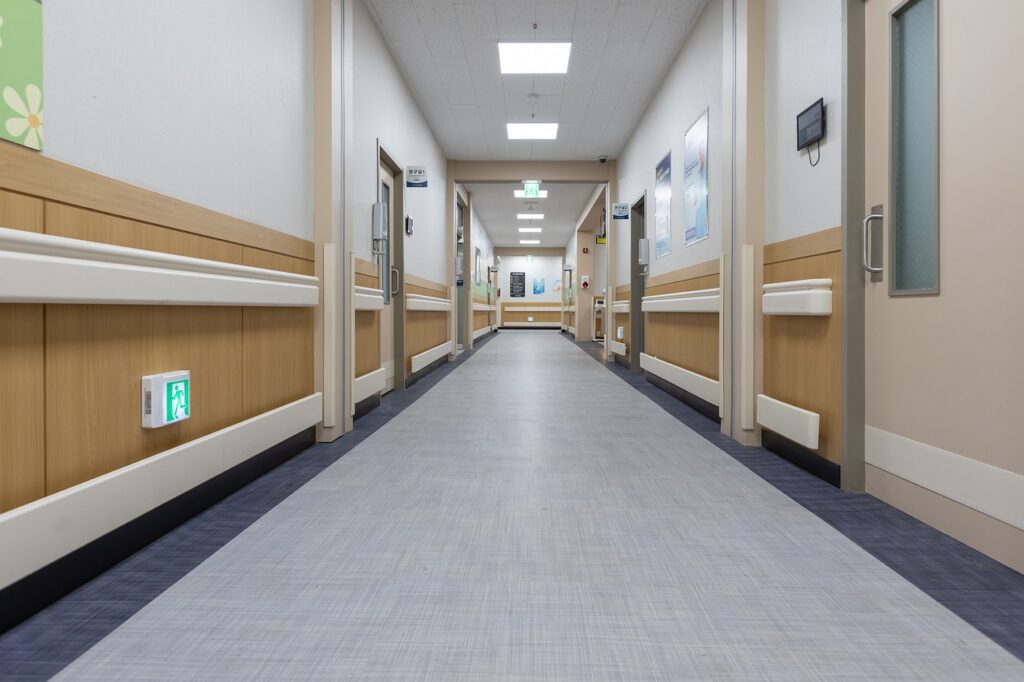
This article is a part of your HHCN+ Membership
In March, the U.S. Centers for Medicare & Medicaid Services (CMS) approved a request from one state to allow more personal care service delivery within acute care facilities. Though not yet widespread, the amendment could open doors for providers and patients needing personal care in alternative settings in the future.
One change to a Medicaid program may seem negligible, but with Medicaid program directors talking to each other as much as they do – and taking feedback while applying it to their own state programs – the change is worth paying attention to.
Essentially, this option for additional personal care to be provided to patients in acute care settings was granted during the COVID-19 pandemic, with Rhode Island later on getting approval to make the amendment permanent through a 1115 demonstration.
“CMS has determined that Rhode Island’s demonstration amendment is likely to assist in promoting the objectives of the Medicaid statute by increasing access to high-quality medical assistance coverage for certain low-income individuals,” the agency wrote in a letter to the state’s Medicaid director.
Home- and community-based services (HCBS) providers can now step in and offer care that would otherwise not be a part of a hospital’s care plan. For instance, certain individuals may have needs that hospital staff are unequipped to address, such as dementia or other behavioral challenges, Damon Terzaghi, the director of Medicaid advocacy at the National Association for Home Care & Hospice (NAHC), told Home Health Care News.
That’s one reason that, in particular, the IDD provider and advocacy community was pushing for these types of amendments during the peak of the pandemic. Eventually, the option was included in the CARES Act.
The more care patients can receive in an acute setting, the better. More specifically, the more care they can receive tailored to their specific needs, the better.
Home-based care providers can now step in and elevate the level of care and comfort for patients in Rhode Island.
“The real impetus of this policy is to make things easier for the participant,” Terzaghi said.
He offered a few examples. Take an older adult with dementia who has broken his or her hip and been placed in the hospital. The cognitive issues may lead to challenges that hospital staff are unable to address, potentially leading to a worse health outcome for the patient. At that point, behavioral health care or personal care could be provided by an outside home-based care agency.
Providers wouldn’t be delivering care the hospital is already obligated to provide, but instead augmenting care plans for these types of individuals.
“Having a caregiver that may be a little bit more trusted – or that’s familiar with their own routines, nuances or the specifics of their behaviors – would be extremely valuable in alleviating potential adverse incidents,” Terzaghi said. “Helping the individual calm down, making sure that their needs are matched, and those sorts of things. And then also, just having that person in the hospital helps get them back into the community faster and smoother.”
Popularizing the concept
Rhode Island is a trailblazer in its adoption of Medicaid-funded personal care services in acute care settings, but it’s likely other states will adopt, if there’s positive outcome data driven by the change.
“When a state makes an innovation and has a good experience with it – meaning there’s good cost effectiveness attached to it – other states adopt it,” Darby Anderson, executive vice president and chief government relations officer at Addus HomeCare Corp. (Nasdaq: ADUS), told HHCN. “In this day and age, state Medicaid directors talk, and so do the more programmatic people involved with the programs.”
Frisco, Texas-based Addus provides home care services that primarily include personal care services that assist with activities of daily living (ADLs). It also delivers hospice and home health services, with its overall footprint stretching across 217 locations in nearly two dozen states.
If more states did adopt the flexibility, it would be a major win for patients, for one. But it would also be a tailwind for providers and payers, though to what extent remains unclear.
Anderson believes the flexibility is already one worth advocating for, but doesn’t see a direct line yet to an upturn in business for HCBS providers.
But, symbolically, further adoption would be a win for the HCBS provider community. There would also be ancillary benefits to providers’ care plans, Terzaghi said.
“What this does do is it increases predictability, it increases the ability of the providers to schedule and assume that, even if this individual does ultimately get admitted to a hospital setting for whatever reason, we’re not going to have to scramble and reallocate hours,” he said. “It’s much more predictable for everyone across the board. I think it’s definitely beneficial to providers, I think that it will increase predictability, and also potentially lead to some revenue upside.”
With the flexibility implemented, the next step is to wait and see how things turn out for Rhode Island.
If HCBS providers, patients and hospitals all benefit – through better outcomes and perhaps some cost savings – it’s the sort of change that could bring on a ripple effect across the country.
“What were the outcomes we saw? Did the benefit to the individuals, providers and the state ultimately demonstrate through the provision of these services?” Terzaghi said. “And if so, will this be something that catches on nationwide and is made permanent? I think that those are really important questions to examine further.”
Companies featured in this article:
Addus HomeCare Corp., National Association for Home Care & Hospice




